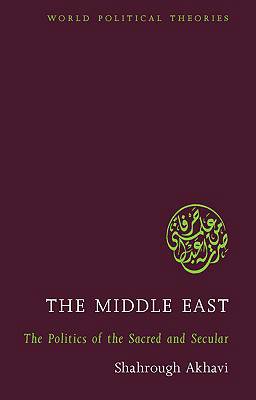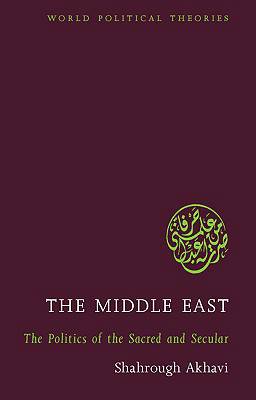
En raison d'une grêve chez bpost, votre commande pourrait être retardée. Vous avez besoin d’un livre rapidement ? Nos magasins vous accueillent à bras ouverts !
- Retrait gratuit dans votre magasin Club
- 7.000.000 titres dans notre catalogue
- Payer en toute sécurité
- Toujours un magasin près de chez vous
En raison de la grêve chez bpost, votre commande pourrait être retardée. Vous avez besoin d’un livre rapidement ? Nos magasins vous accueillent à bras ouverts !
- Retrait gratuit dans votre magasin Club
- 7.000.0000 titres dans notre catalogue
- Payer en toute sécurité
- Toujours un magasin près de chez vous
44,95 €
+ 89 points
Format
Description
Amidst recent hype about events in the Middle East, there have been few attempts to get below the surface and develop a fuller understanding of what politics means there. The Middle East: The Politics of the Sacred and Secular redresses this balance and provides essential historical and theoretical context.
In this book, Shahrough Akhavi shows that the way people think about politics in the Middle East has developed in response to historical experience. Islam has obviously played a pivotal role and the book does much to disentangle myth and reality about Islamic responses to politics. Refreshingly, however, the book focuses on the universal concepts of the individual, civil society, the state, justice, authority and obligation and how these have been interpreted by Middle Eastern thinkers in the twentieth and twenty-first centuries. Akhavi builds a dynamic picture of a politically exciting and engaged region. The fresh perspective this book brings to global political theory, and the background it gives students of politics in the Middle East make it an important addition to the World Political Theories series.Spécifications
Parties prenantes
- Auteur(s) :
- Editeur:
Contenu
- Nombre de pages :
- 304
- Langue:
- Anglais
- Collection :
Caractéristiques
- EAN:
- 9781842778975
- Date de parution :
- 01-08-09
- Format:
- Livre broché
- Format numérique:
- Trade paperback (VS)
- Dimensions :
- 138 mm x 217 mm
- Poids :
- 367 g

Les avis
Nous publions uniquement les avis qui respectent les conditions requises. Consultez nos conditions pour les avis.






